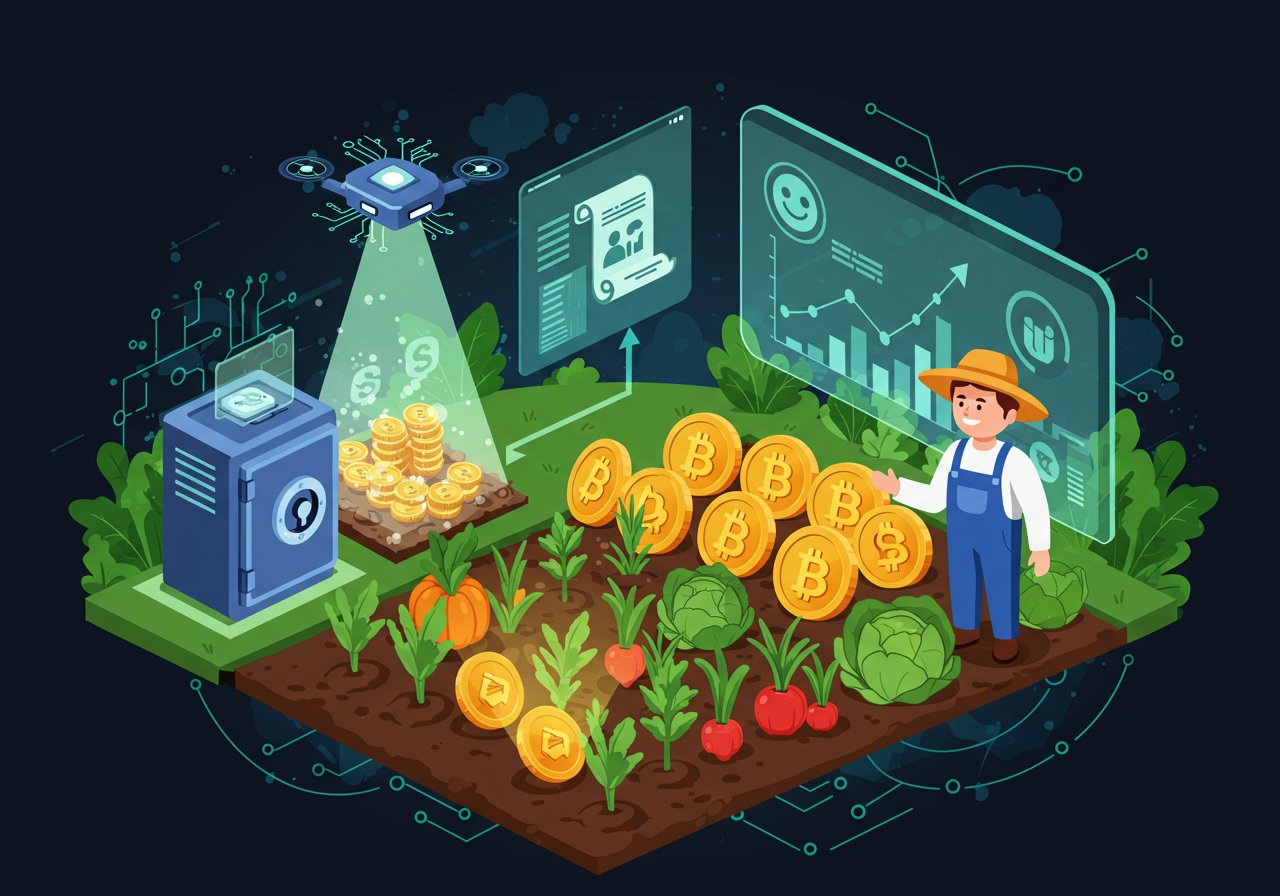
Blockchain‘s Roots in the Soil
The convergence of blockchain technology and agriculture might seem unexpected, but a closer look reveals a powerful synergy poised to revolutionize food production and distribution. This is particularly evident in the insights shared by Yana Leonova on “The Clear Crypto Podcast,” where she highlights blockchain‘s potential to address critical global challenges. This includes tackling the pervasive issue of food waste and providing solutions to complex land disputes.
Transparency and Traceability: A New Dawn for Supply Chains
One of the most compelling applications of blockchain in agriculture lies in enhancing supply chain transparency. Projects like IBM Food Trust and WWF’s OpenSC are already leveraging blockchain to track products, ensuring authenticity and provenance. Leonova cites the Farm to Plate initiative in the UAE as a prime example, reducing food waste by an estimated $6 billion. This initiative improved visibility across the supply chain and optimized supply and demand matching in real time. According to Leonova, “Blockchain gives you a real-time picture… and data is the key these days.”
Empowering Farmers through Smart Contracts
Beyond logistical improvements, blockchain offers the potential to empower smallholder farmers. Smart contracts can eliminate intermediaries, ensuring fair and automated payments directly to producers. This creates a more equitable system, fostering financial inclusion and supporting sustainable farming practices. Leonova emphasized that “The idea is that we can use tokens and smart contracts… there is no middleman, no judgment. If a farmer provides food, he gets paid, automatically and fairly.”
Justice and the Immutable Ledger
Blockchain‘s impact extends beyond economics, addressing issues of justice and land rights. Immutable ledgers can provide secure and permanent records, particularly crucial in the aftermath of disasters where traditional paper records may be lost or destroyed. This protection ensures that property ownership is irrefutable and secure. “Nobody can impose their rights on your property. You cannot bribe the blockchain,” Leonova stated.
Overcoming Skepticism and Building Trust
While the potential of blockchain in agriculture is significant, adoption requires time and trust. As co-hosts Nathan Jeffay and Gareth Jenkinson point out, this technology is not just about financial speculation or remote cryptography. It’s about creating solutions for real-world problems. Leonova acknowledges the skepticism but remains optimistic about the future. With growing understanding and trust, blockchain is poised to play a transformative role in shaping a more sustainable and equitable future for humanity.
The Future of Food: A Blockchain-Powered Ecosystem
The integration of blockchain into agriculture represents a paradigm shift, promising a more transparent, efficient, and just food system. From improving supply chains to empowering farmers and securing land rights, the technology is poised to make a profound impact. By embracing the potential of blockchain, we can cultivate a future where food production is not only sustainable but also benefits everyone involved, from the soil to the smart contract.


